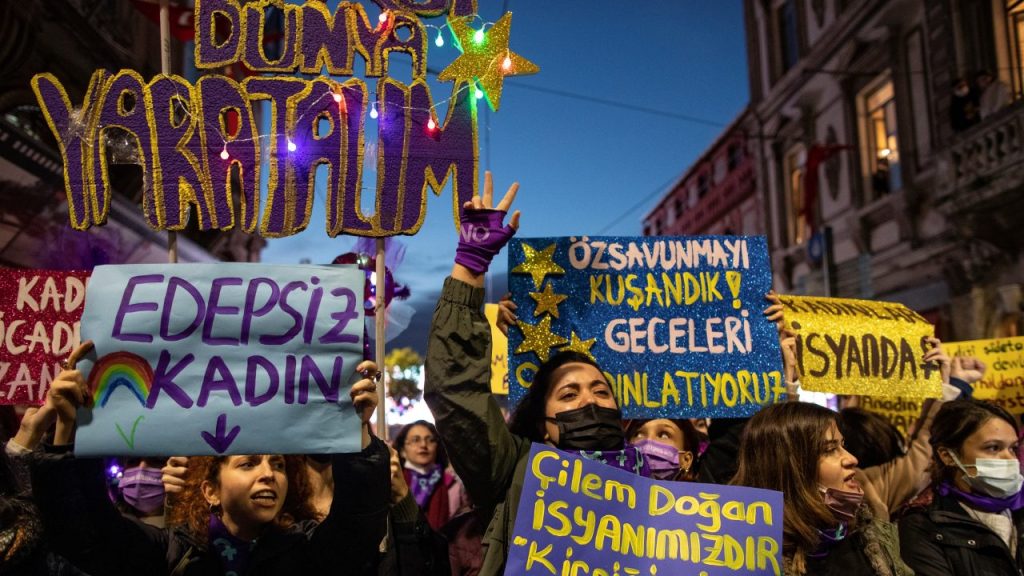Amnesty International published a report on women’s rights in Turkey titled “Turkey, Turn Words Into Action.” The report analyses the current situation of violence against women in the country, including a summary of the obligations of the State to respect, protect and fulfil women’s right to be free from violence.
It also provides an overview of Turkey’s current obligations to protect women’s human rights based on a review of Turkish legislation, the recommendations by UN treaty bodies, the Council of Europe, and other relevant international organisations, as well as consultations with women’s rights organisations in Turkey.

Amnesty International’s Turkey branch published a report on calling on the Turkish government to take action to protect women instead of giving false promises after the country withdrew from Istanbul Convention, a European treaty on women’s rights and domestic violence.
The report, “Turkey, Put Words into Action”, noted a significant gap between promises of zero tolerance for violence against women and action by the government.
“The absence of a political will to achieve gender equality is one of the most important obstacles to ending violence against women in Turkey,” the report said.
Amnesty said the government had repeatedly made verbal promises to protect women from gender-based violence, only to take steps that contradict these promises, such as withdrawing from the Istanbul Convention.
Following to the country’s exit from the convention, Turkey had failed to produce a comprehensive law for women’s rights and domestic violence; the report shows new laws and action plans have many deficiencies.
“Gender equality is not mentioned even once in the [government’s] plan. There is no reference to old plans … Violence against women is handled as a purely technical situation,” the report quoted Fehmiye Ceren Akcabay, a Turkish lawyer, as saying.
The report also highlighted important wrongdoings regarding the protection of women over issues such as child marriage.
“In 2015, religious marriages without a civil marriage were decriminalized. According to studies, 62.7 per cent of child marriages were religious marriages,” it said, noting that the government had also pushed parliament to pass laws that delay or not implement sanctions if the perpetrator then marries a child exposed to sexual abuse.
The report also said that older women and women with children were discriminated against in women’s shelters and that stalking, forced marriages and psychological violence are not named as special crimes in Turkish criminal law.
Femicide and violence against women remain major problems. So far, in 2021, at least 385 women were killed by men; 410 women were killed by men in 2020 and 422 in 2019.
The Council of Europe’s Convention on Preventing and Combating Violence Against Women and Domestic Violence, known as the Istanbul Convention, is a human rights treaty intended to address violence against women and domestic violence. It was opened for signatures in May 2011 in Istanbul.
But while Turkey was the first country to ratify the treaty, Islamist and conservative critics claimed that it undermined traditional family values and President Recep Tayyip Erdogan then withdrew Turkey from the treaty.
Repeated calls for Turkey’s return to the convention have been dismissed by the government; President Erdogan instead announced an action plan on July 1 to counter domestic violence, which will replace the convention.
On November 26, police fired tear gas and rubber bullets to disperse tens of thousands of women protesters who marched in several Turkish cities to mark International Day for the Elimination Violence Against Women.
You can read the full report here.

